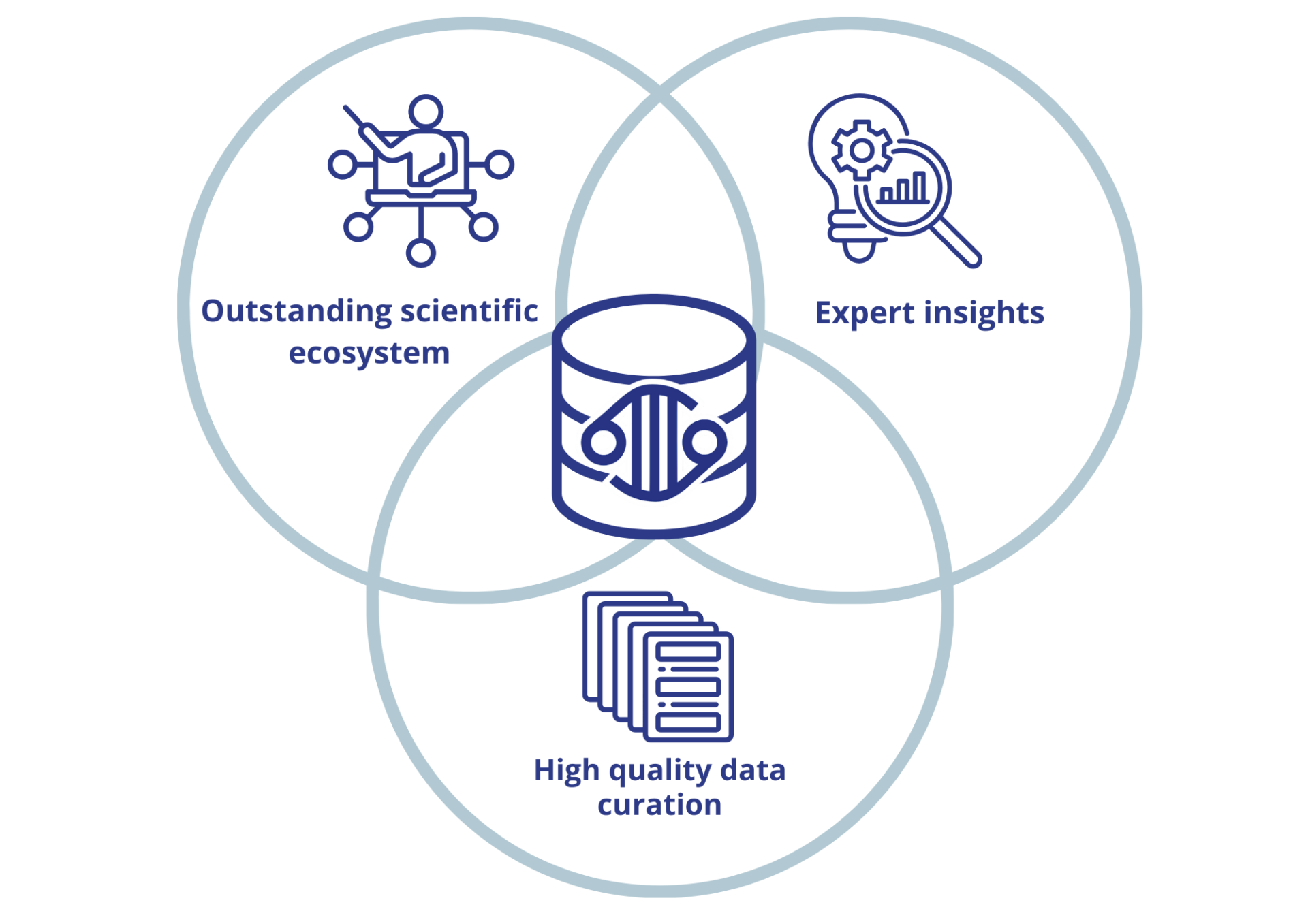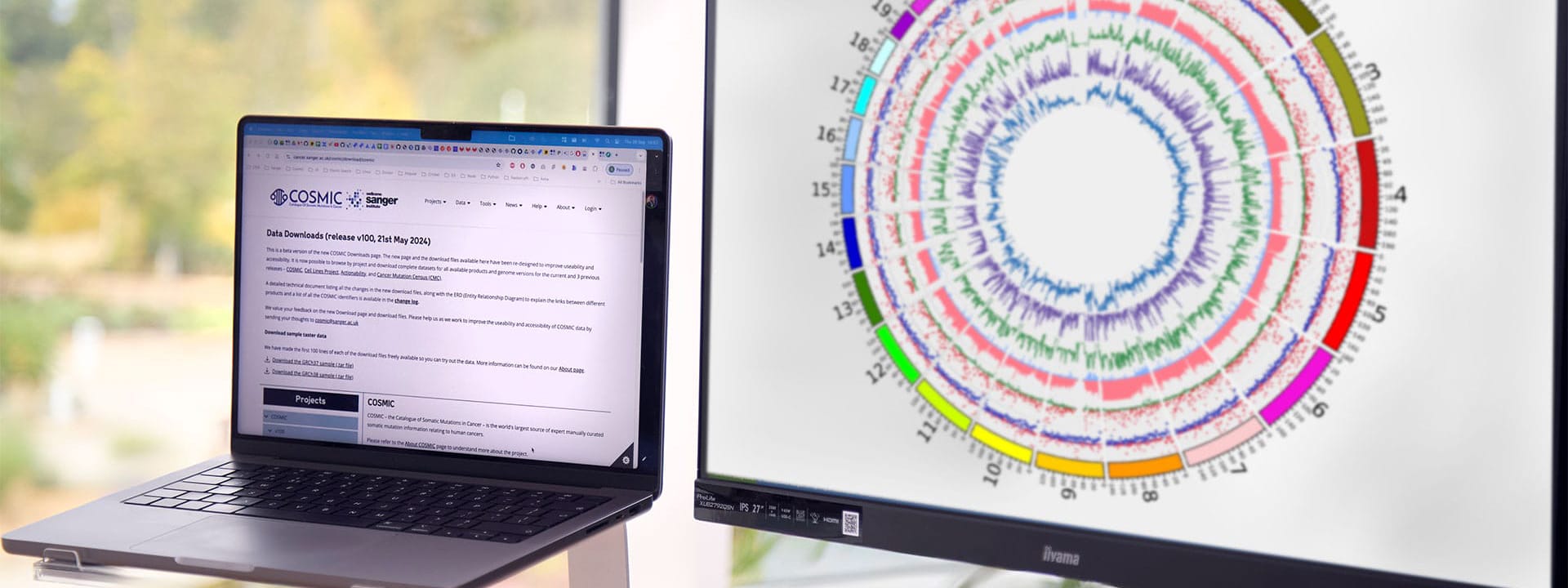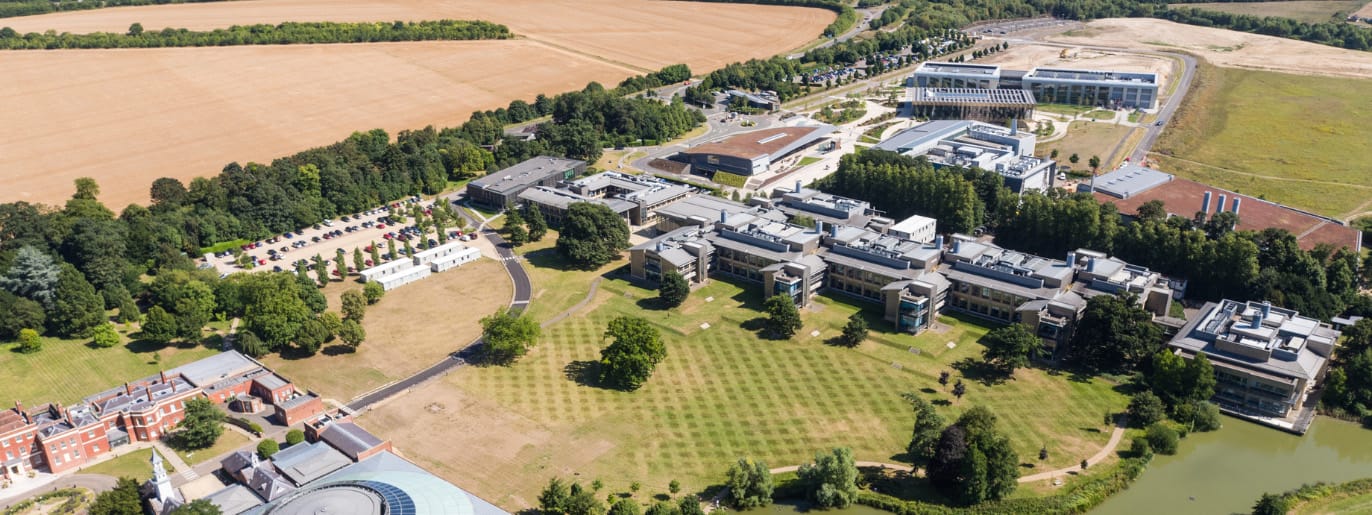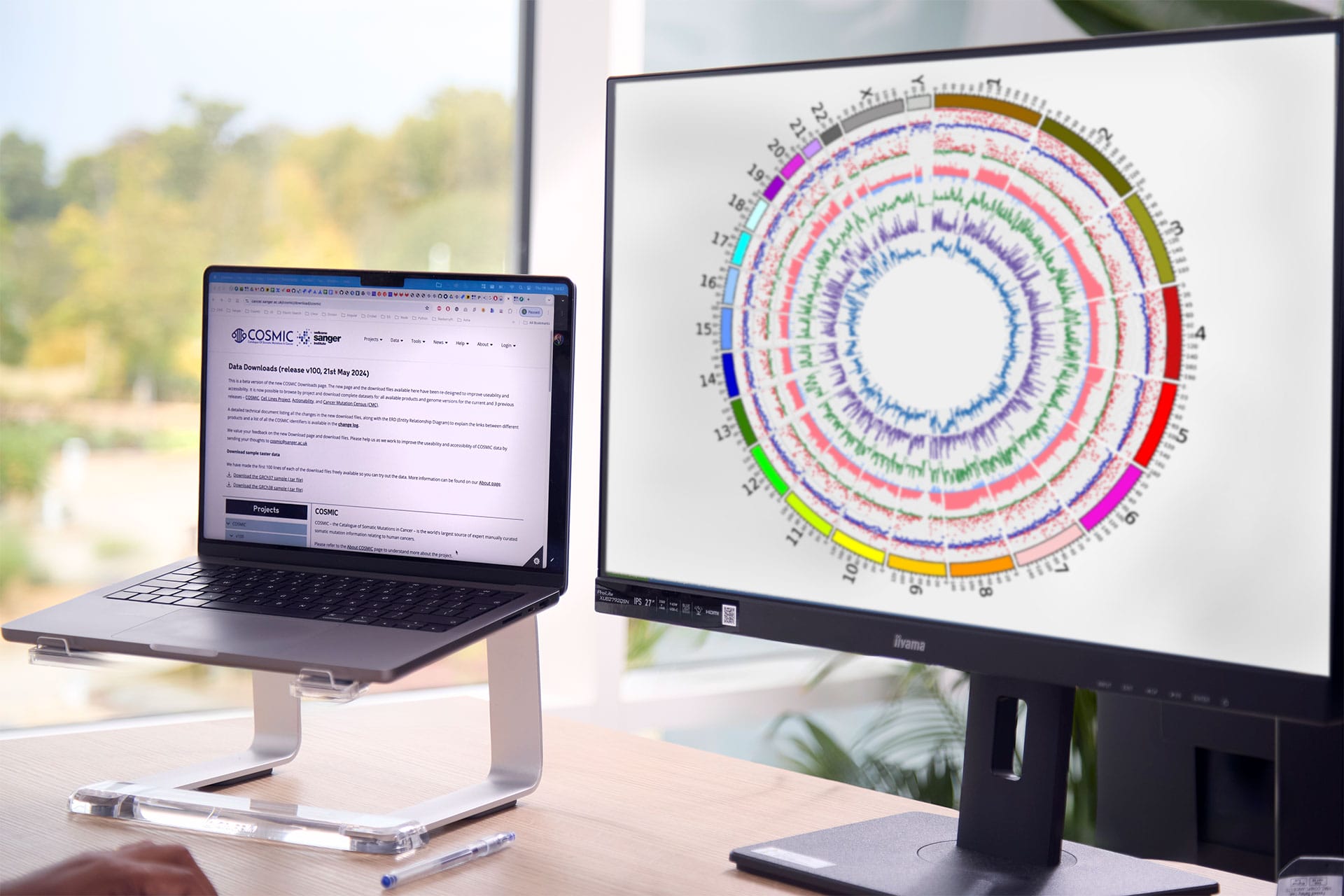COSMIC has pioneered data curation, with over two decades of expertise, aiding in the interpretation of genomic data and understanding the role of somatic alterations in cancer.
Being part of the Wellcome Sanger Institute offers an exceptional environment for us. With proximity to leading research hubs, COSMIC is perfectly positioned for cutting-edge collaborations, breakthrough innovations, and access to world-class cancer genomics expertise.

COSMIC Modules
COSMIC combines expert knowledge and standardised data from various sources into one central repository, supporting users in unveiling insights from a multitude of datasets.
By using our curated data that is organised into modules, researchers and clinical scientists can further explore the molecular mechanisms of cancer, including insights into likely causes, available treatments and potential treatment resistance.
Find out more about those modules in the interactive diagram below.
CORE COSMIC
- Metadata to allow stratification
- Coding and non-coding variants
- Copy number and genomic rearrangements
- Gene fusion events
- Cell line variants
The largest resource of its kind, CORE COSMIC is our main data set with curated mutations and insights through to variant description and effect. COSMIC includes coding and non-coding, structural variants, fusions and more. The source data come from expertly selected and curated peer reviewed publications, public datasets and NGS panels.
Each sample includes up to 45 curated metadata points, providing rich context and expert insights into mutation data. Our expert Scientific Curators follow a standardised curation process and prioritise the most relevant and impactful information, ensuring COSMIC stays aligned with the latest industry trends and advancements. This enables users to identify key mutations, their distribution, and frequency in all cancer types and histologies with confidence in data significance and quality.
Furthermore, with a twice a year update, COSMIC’s core catalogue integrates the latest cancer genomics discoveries, ensuring our users have the latest dependable findings.
Explore COSMIC’s core catalogue here (Login required)
Stratification
Gene Census
Cancer genes ranked by causal evidence
Our Cancer Gene Census is an on-going authoritative list of genes causally implicated in cancer, and is additionally associated with fully referenced Hallmarks of Cancer functional annotations.The Gene Census categorises the mechanism, or mechanisms, by which each gene plays a role in cancer: tumour suppressor, oncogene and/or fusion gene.
Genes are ranked according to the strength of the evidence collated and reviewed by our scientific curators:
Tier 1 genes have an activity relevant to cancer, and are affected by frequent somatic alterations and/or rare pathogenic germline variants that promote development and progression of cancer.
Tier 2 genes also have convincing evidence for involvement in cancer, but the functional evidence is less well established and/or their somatic mutation profile is less characteristic of a specific role in cancer. The Cancer Gene Census contains >750 genes with 75% of them having Tier 1 evidence levels. Hallmarks of Cancer annotations have currently been compiled for 60% of Tier 1 genes.
A more detailed overview is available here (Login required)
Mutation Census
Driver and passenger mutations identified
Our Cancer Mutation Census module assists users to answer the question ‘Which coding mutations matter the most?'. Combining a statistical analysis of mutation frequency relative to background gene mutation rate with integration of data from multiple sources, CORE COSMIC coding point mutations are ranked according to their likely pathogenicity.
Additional information is available here (Login required)
Cause & effect
Signatures
Genome wide mutation profiles
COSMIC Mutational Signatures module is a resource curated in partnership with Cancer Grand Challenges. Signatures are available across the main mutation types; single base and doublet base substitutions, small indels, copy number and structural variants. Identification of these signatures is performed using analysis of Pan-Cancer Analysis of Whole Genomes (PCAWG) data and specific curated papers. This information deepens our understanding of the aetiology of cancer and helps predict responses to DNA repair-targeting therapies. The data are complemented by an Experimental Signatures set extracted from model organisms following exposure to known carcinogens. Analysis tools are available for users to obtain a signature assignment using their own data files.
Learn more on mutational signatures here (login required)
COSMIC 3D
Protein effects of variants
This interactive web based module visualises cancer mutations in 3D protein structures. It illustrates how mutations alter protein-drug interactions, revealing functional impacts and enhancing drug development. COSMIC 3D turns data into actionable structural insights for therapeutic innovation.
Visualise cancer mutations 3D effects on proteins click here (Login required)
Clinical insight
Resistance
Curated resistance data for therapies
By curating mutations associated with resistance to cancer treatments, COSMIC provides essential insights to help overcome treatment challenges and thus increase the probability of improving patient outcomes. This module supports treatment strategies, helps anticipate drug resistance and refine therapeutic approaches.
Learn more on drug resistance here (login required)
Actionability
Clinical trials and outcome data
COSMIC curates links between mutations to available therapies and clinical trials, an essential component of personalised medicine, by matching variants to the most effective treatments for a given cancer profile. Actionability is updated quarterly to keep up with the fast moving precision oncology industry, and currently contains information on over 13,000 trials spanning over 1000 different genetic variants. This curated database supports precision oncology by connecting mutations to actionable information.
Learn more about actionability here (login required)




